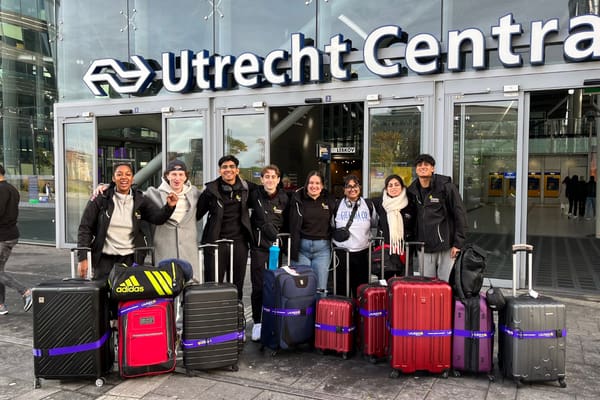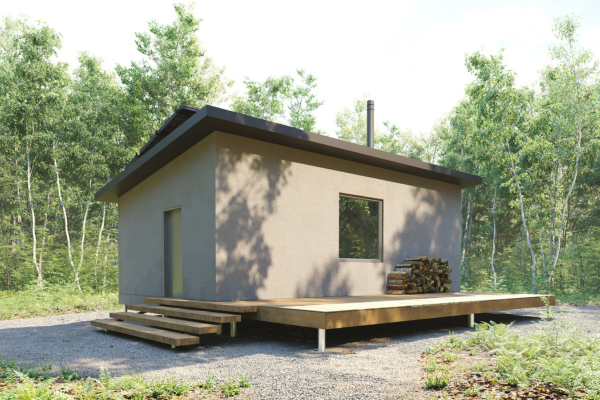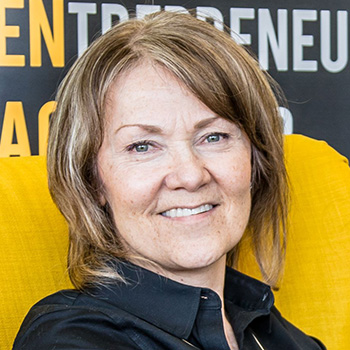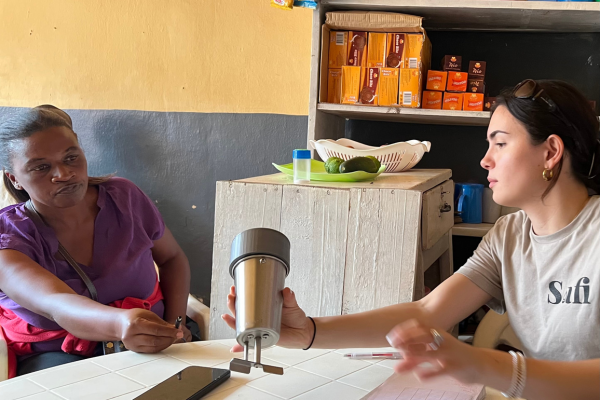Search for academic programs, residence, tours and events and more.
Oct. 17, 2023
Wilfrid Laurier University’s Enactus team is aiming to make a global impact at the Enactus World Cup, a worldwide entrepreneurship competition taking place in the Netherlands from Oct. 17 to 20, after winning the national Enactus Canada competition in May.
This is the third time in the past four years that Laurier’s Enactus team has represented Canada at the Enactus World Cup. Laurier’s Enactus team was named runner-up at the competitions in 2021 and 2020.

“The level of innovation and determination these Laurier students exhibit continues to astound and inspire me,” says Laura Allan, director of innovation and entrepreneurship at Laurier and assistant professor in the Lazaridis School of Business and Economics. “The solutions they have created for very complex problems are potentially life-changing for the communities in which they are being piloted. I am excited to watch our student innovators continue to make positive change around the world.”
Laurier’s Enactus team includes representatives from two student-led ventures, Kuponya Innovations and Safi, who will compete against teams from 32 countries at the Enactus World Cup competition. More than 42,000 post-secondary students from around the world have participated in regional and national competitions ahead of the global event.

Kuponya Innovations is building affordable, sustainable and climate-resilient tiny homes in remote northern Indigenous communities across Canada. The homes, priced at approximately one-third the cost of traditionally constructed dwellings, are made from structural insulated panels that upcycle more than 600,000 plastic water bottles per home.
Unlike traditionally constructed homes, these homes can be assembled in days rather than months. The tiny homes sit upon climate-resilient ground screw foundations to protect against rising flood lines and are sprayed with a fire-resistant coating made from sustainable cork to reduce the potentially devastating impact of forest fires. Kuponya Innovations’ homes also incorporate “passive house” and “net zero” principles into their design to lower operating costs and reduce reliance on fossil fuels.
Student leaders from Kuponya Innovations are collaborating with Indigenous communities on several aspects of the project. Local labour will be used to construct the homes, creating employment opportunities for residents and reducing reliance on outside trades. Indigenous youth will also have access to paid internships to ensure Kuponya Innovations includes appropriate adaptations to meet the needs of homeowners.
Kuponya Innovations’ first model home will be constructed in Yellowknife, Northwest Territories in the spring of 2024.


“The solutions they have created for very complex problems are potentially life-changing for the communities in which they are being piloted. I am excited to watch our student innovators continue to make positive change around the world.”
Laura Allan, director of innovation and entrepreneurship at Laurier and assistant professor in the Lazaridis School of Business and Economics.
Safi has created a simple, cost-effective pasteurization device to ensure the production of safe and nutritious milk by small-scale dairy farmers and vendors in East Africa. Unpasteurized milk can contain several harmful pathogens. East Africa has the highest incidence of milk-borne disease, with 30 per cent of related deaths occurring in children under five.
Up to 90 per cent of milk produced in East Africa is sold raw through an informal, unregulated market as existing pasteurization solutions are too cost-prohibitive for small-scale dairy farmers.

Safi’s patent-pending pasteurization device fits any sized pot and has a proprietary three-colour LED thermometer that indicates when the conditions for pasteurization have been met. As the world’s first off-grid pasteurization device, Safi’s unit is portable and can easily and affordably pasteurize up to 15 litres of milk in approximately three minutes.
Priced under $70 CAD each, Safi’s pasteurization devices allow dairy farmers to realize an average of 82 per cent more for their milk and recover the cost of the unit in just seven days.
Safi’s student leaders are working with milk cooperatives and social enterprises in Rwanada and Kenya and will scale their enterprise to meet identified needs in Uganda and Oman.
View the Laurier Enactus presentation from the national Enactus Canada competition in May and watch the World Cup competition via livestream.